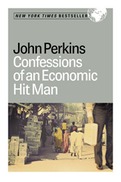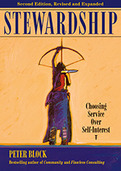BK Blog Post
Five Ways You Didn't Realize Money Controls Politics
 Posted by
Jeevan Sivasubramaniam,
Managing Director, Editorial,
Berrett-Koehler Publishers Inc.
Posted by
Jeevan Sivasubramaniam,
Managing Director, Editorial,
Berrett-Koehler Publishers Inc.
Many of us are keenly aware of how money functions in politics and how it can help sway voters and others through media and branding. But money works in more insidious ways at the roots and thwarts the democratic process before it even truly begins. Unfortunately, most of us are unaware of how money works behind the scenes in the political theater--even if we think we do.
Here are five hidden ways in which money influences politics based on actual data and publicly-accessible information from the Federal Elections Commission, the Center for Responsive Politics, and Factcheck.org:
1. Money Stops Diversity in Political Candidates: Ever noticed how candidates all seem to have similar backgrounds, approaches, outlooks, and social circles? Call it the rising price of admission, but the average winner of a U.S. House race in 2010 spent $1.4 million whereas a Senate race's expense was, on average, over $7 million. In other words, it doesn’t matter what a candidate’s values and character are if he or she does not have access to money, and given how few those sources for money are, you can bet that only a handful of the select or elite have access.
2. “The People’s Money” Can’t Get You Elected: Any campaign lives or dies by its funding and for a long time there has been a popular myth about how everyday voters who outnumber the wealthy will collectively donate more money than the few donations of the wealthy. But this remains just a myth. A study of candidates for Congress in 2010 showed that 48% of all funds donated to campaigns came from wealthy individuals. Small donations from citizens accounted for just 13% of all funds. Connecting with the people is great for media exposure but lousy for actual campaign funding.
3. Money Ensures No Big Changes in Policy: For the last two decades, the Center for Responsive Politics in Washington DC has combed through the FEC’s records to see which sectors donated the most to candidates. Without fail, the same seven sectors consistently donated the most to all campaigns regardless of party affiliation: agribusiness, construction, defense, energy, finance, labor, and communications. This means candidates “owe” their victories to these forces and regardless of whether Democrat or Republican, feel obliged to them and so are not likely to bite the hands that feed them.
4. The Money Train Never Stops. To think that money is an issue only during election years and that the business of government gets done at other times is just plain wrong. Money is a topic and issue year-round and dictates daily life in the politics of the nation. Given how much it takes to finance a campaign or measure, fundraising begins years before the actual vote. A candidate who has just won an election must automatically begin fundraising for his or her next term the very next day in order to obtain the millions of dollars needed. This means that money fuels the political machine consistently and without a break.
5. The Agency Monitoring Elections and Campaigns Is Almost Useless: Congress created the FEC but set it up as a six-member group. And therein lies the problem: six is an even number and the membership consists of three Republicans and three Democrats, which means that a ruling is always a challenge since getting a majority of four or more votes remains a challenge. Tie votes mean no actions can be taken and the matter needs "further deliberation." Because of this, it takes years to resolve complaints and issues, and in the meantime, political operatives skirt the edges of potential legislation without fear of interference or reprimands.






